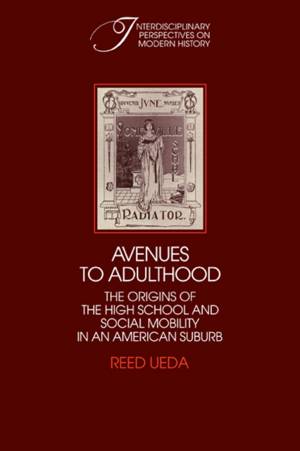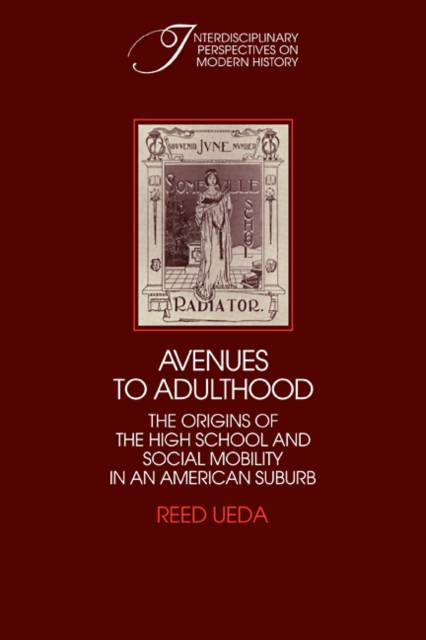
- Afhalen na 1 uur in een winkel met voorraad
- Gratis thuislevering in België vanaf € 30
- Ruim aanbod met 7 miljoen producten
- Afhalen na 1 uur in een winkel met voorraad
- Gratis thuislevering in België vanaf € 30
- Ruim aanbod met 7 miljoen producten
Zoeken
Avenues to Adulthood
The Origins of the High School and Social Mobility in an American Suburb
Reed Ueda
€ 64,95
+ 129 punten
Uitvoering
Omschrijving
American educators have hailed the public high school as the ultimate guarantor of equal opportunity in a modern educational system. Avenues to Adulthood assesses how the high school played this role. Professor Ueda's book discusses the reasons for the modernisation of the high school at the turn of the twentieth century, the kinds of opportunities the high school offered and the way in which it became a focus of civic life that reshaped the American sense of community and generation. To the extent that a small share of poor immigrant children gained access to the high school and received its advantages, that institution counteracted the disadvantages of inherited social status. Academics, interscholastic sports and journalism turned the high school into a focal point of civic pride. Ultimately by supplying educational advantages that affected adult career patterns, the high school was a powerful force in reshuffling the social elites of the early twentieth-century city.
Specificaties
Betrokkenen
- Auteur(s):
- Uitgeverij:
Inhoud
- Aantal bladzijden:
- 320
- Taal:
- Engels
- Reeks:
Eigenschappen
- Productcode (EAN):
- 9780521100687
- Verschijningsdatum:
- 29/01/2009
- Uitvoering:
- Paperback
- Formaat:
- Trade paperback (VS)
- Afmetingen:
- 152 mm x 229 mm
- Gewicht:
- 471 g

Alleen bij Standaard Boekhandel
+ 129 punten op je klantenkaart van Standaard Boekhandel
Beoordelingen
We publiceren alleen reviews die voldoen aan de voorwaarden voor reviews. Bekijk onze voorwaarden voor reviews.







